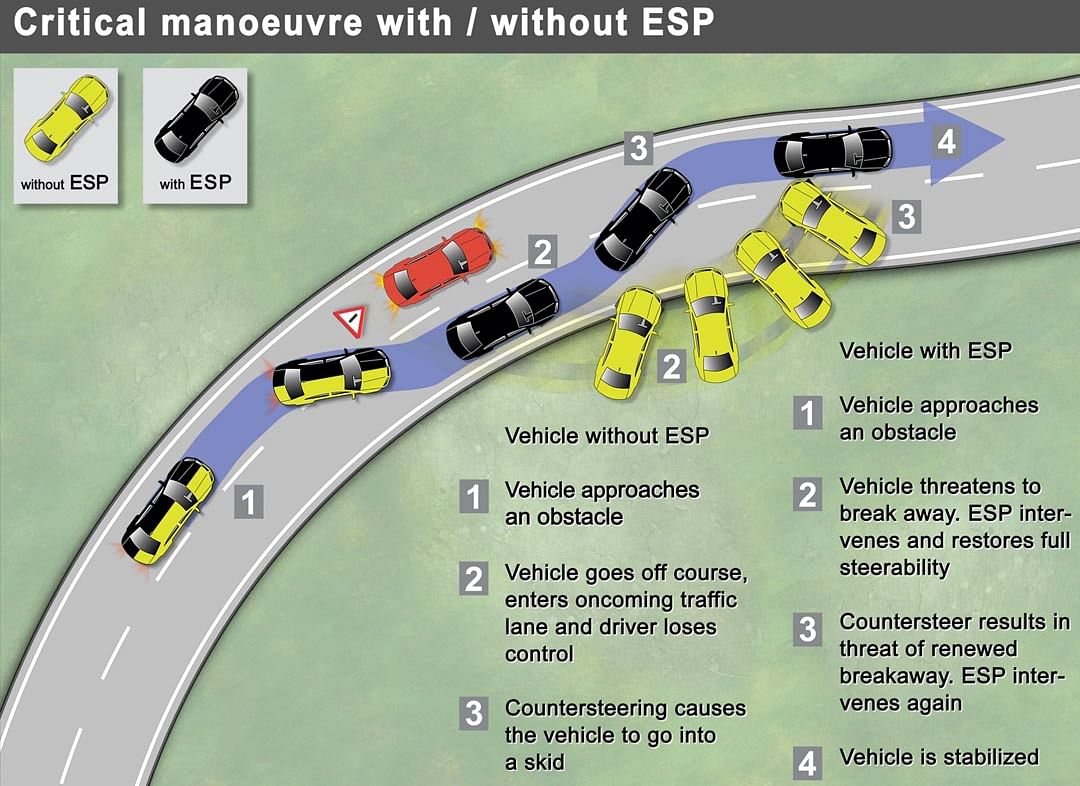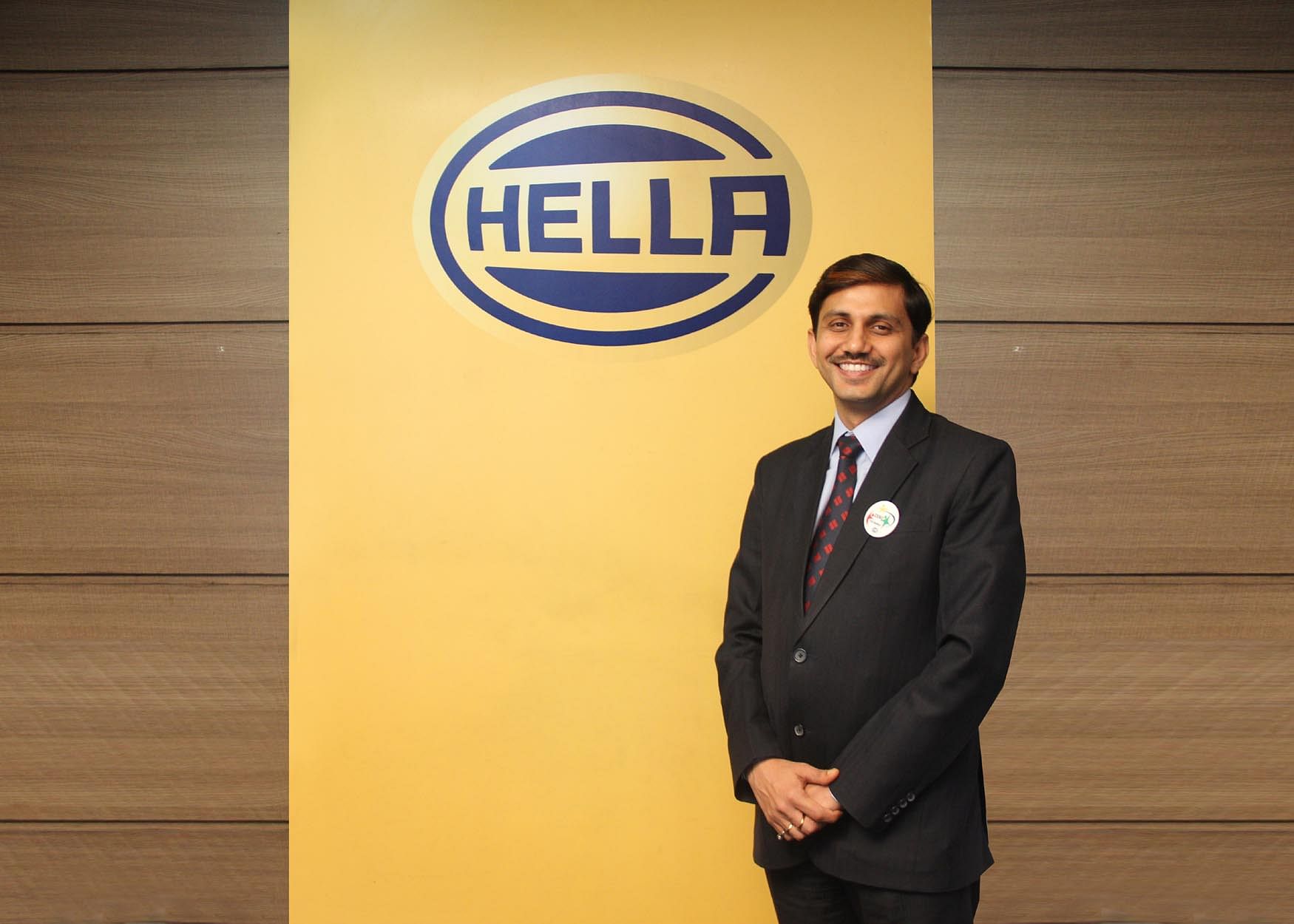Industry experts bet on tech, regulations and proactive steps for safer mobility in India
Autocar Professional's safety webinar sees lively debate on measures to reduce accidents, injuries and fatalities through life-saving tech like ESC, and OEMs to equip vehicles with higher levels of safety.
As India looks to address its alarming rate of road accidents and resultant injuries and fatalities, all stakeholders will need to start looking at a collaborative approach instead of working in silos. This was the unanimous opinion of industry leaders at the 4th Autocar Professional Safety Webinar held on May 8.
It’s not just India which is grappling with the challenge of tackling a high accident and fatality rate but one which also continues to be a vexing challenge globally. According to the latest World Health Organisation report, over 1.3 million road deaths took place globally in 2017, which translates to around 3,500 road deaths every day. Of this, India sees around 4 deaths happening every minute on its roads. While there cannot be a value put to human life, the socio-economic losses claimed by these road accidents range in the order of Rs 3.30 lakh crore, or around 3 percent of the country’s GDP.
Electronic Stability Control as catalyst for safer motoring
The first fortnight in the month of May (May 8-14) is when the topic of road safety takes even more prominence with the United Nations’ Global Road Safety Week being observed around the world. 2018 is the eighth year in the UN’s Decade of Action for Road Safety, with its goal to stabilise and then reduce the forecast level of road traffic fatalities around the world by increasing activities conducted at the national, regional and global levels.
With an aim to debate and discuss the topic of road safety among industry leaders and professionals of the automotive industry, Autocar Professional has been driving its annual webinar on road safety right since 2015. While last year, the agenda for discussion was ‘Embarking on a Safer Journey’, the fourth edition of the online event this year brought to fore opinion on ‘Technologies and Regulations for Safer Indian Roads’.

This year the online safety initiative involved an eminent group of participants and industry experts, moderated by Autocar Professional’s executive editor Sumantra B Barooah, and sponsored by Hella India Lighting as the title sponsor. David Ward, secretary general, Global NCAP; Jyotindran S Kutty, head, Vehicle Attributes and Technical Services, Tata Motors; Ramashankar Pandey, managing director, Hella India Lighting and Alexander Klotz, head, India Technical Centre, Continental were the panellist at the webinar.
As it turned out, one of the big takeaways from the webinar was the consensus on advancing the use of ESC (Electronic Stability Control) in vehicles. ESC, an anti-skid technology that can help prevent loss of control crashes, is widely considered to be the most important car safety development since the seatbelt. ESC has been mandatory in both the EU and US since 2012, saving thousands of lives.
Interestingly, last October, 12 major Chinese car brands – Besturn, Changan, Dongfeng Fengshen, Geely, Haval, Hongqi, Lynk & Co, MG, Trumpchi, Roewe, Senova, and Wey – which collectively represent 85 percent of the Chinese manufacturer market, announced their decision at the launch of Stop the Crash China to fit all new models with the life-saving, anti-skid ESC technology from January 2018 onwards.
Malaysia too is bullish on ESC and has taken the decision to legislate introduction of electronic stability control (ESC) on all new vehicles by June 2018.
The World Health Organisation says ESC “should be mandatory in all vehicles”. Noting that the system is also effective in commercial vehicles (such as trucks, coaches and mini-buses) the WHO comments that “there is enormous life-saving potential for this technology across the world’s entire vehicle fleet that has yet to be tapped globally.”
HELLA LIGHTING INDIA'S RAMASHANKAR PANDEY
German automotive lighting major Hella, like Continental, has adopted ‘Vision Zero’, where it aims to cut down road accidents to zero by focussing upon ‘recognition’ of threats on the roads with its lighting technologies.
Speaking at the webinar, Ramashankar Pandey, managing director, Hella Lighting India, said, “The economic sustainability of the auto and insurance industry is under threat. An astonishing Rs 380,000 crore is lost due to road accidents every year in India.”
The company’s vision aims to arrest the alarming number of road deaths in the country with breakthrough innovations and in going beyond regulations for improving road safety. “Innovations are always ahead of regulation; in fact it needs to go beyond just meeting regulation. We cannot just copy what is available around the world, it needs to be adopted to meet local challenges,” said Pandey.

He further highlighted how affordability plays a crucial role in enhancing the adoption of any new technology and with a limited purchasing power at the disposal of the Indian consumer, “Prioritisation of safety equipment will help initial motivation to the safety movement of immediate reduction of accidents. Even being a low income country, India needs to significantly invest in research to drive innovation, in order to come up with indigenous solutions to aid road safety in the country,” added Pandey.
He mentioned how the company is also working towards spreading awareness on road safety, and has taken the initiative of founding the Drive Smart Drive Safe NGO, where it brings together all nodal agencies in the automotive space, including ACMA, SIAM, FICCI, CII and has been organising activities to spread the message of value of human life on the road. It recently concluded a 250km walkathon from New Delhi to Chandigarh, in an attempt to spread awareness about pedestrian safety.
GLOBAL NCAP’S DAVID WARD
Speaking at the webinar, David Ward, secretary general, Global NCAP, shared the UK-based safety watchdog’s vision of all new cars meeting the UN crash test standards with airbags, ABS and ESC becoming a standard fitment by 2020, which is also the final year of UN’s decade of action for road safety.

“NCAPs provide a platform for customers to gauge what the manufactures are up to and offer a fair and transparent opportunity for the consumers. While it may have been controversial at the beginning, manufacturers slowly realised the value of such a project, where they could actually perform well and leverage it in good light by showcasing their voluntary efforts gone into making safer products for the customers. The Volkswagen Polo was one such example where the car scored well and the company went on to claim credits to enhance its sales.”
He mentioned how Global NCAP is also spearheading the ‘Stop the Crash Programme’, which promotes implementation of priority crash avoidance systems for passenger cars, buses, commercial vehicles and motor cycles. ESC is mandatory in Australia, Canada, the European Union, Israel, Japan, New Zealand, Russia, South Korea, Turkey and the USA. It will soon also become mandatory in Argentina, Brazil and Malaysia. Last year in China, the major domestic brands too made a voluntary commitment to fit ESC as standard.
“While China currently is at 69 percent penetration of the ESC technology, India is far behind at merely 7 percent, and thus, holds huge potential in enhancing vehicular and road safety by implementation of this highly cost-effective safety technology. ESC is a relatively low-cost technology which can have a big impact on safety and reducing accidents in India. In fact, if there is to be a single priority in pushing crash avoidance in India, then it is ESC," said Ward.
TATA MOTORS’ JYOTINDRAN S KUTTY
Jyotindran S Kutty, head, Vehicle Attributes and Technical Services, Tata Motors, said “With India being an extremely cost-sensitive market, price of a vehicle and fuel economy are the major drivers during vehicle purchase. Convenience features are preferred over safety features and this poses high risk of fatalities during road accidents.”

He mentioned that despite India having the second largest road network in the world, the quantitative road density of 1.70 is higher than that of even some of the developed nations like the US (0.67). Furthermore, road length in India increased 1.4 times over the last decade between 2005 and 2015, and the registered vehicle fleet increased 2.5 times to today stand at a substantial 210 million vehicles on roads in the country. However, with a diversified mix of different mobility solutions, including two-wheelers and autorickshaws, the personal car fleet size in the country is still very low at around 20 cars per 1,000 people, against a notable 450 per thousand in the US.
Commenting the government’s approach through the Ministry of Road Transport and Highways (MoRTH) is spending hugely on road infrastructure development and is working with the ‘4E philosophy’, which includes rectification of black spots on highways, installation of crash barriers in hilly areas, carrying out road safety audits, implementing effective road engineering solutions and educating drivers. Rs 1,100 crore have already been allocated to this drive between FY2015 and FY2017.
“Safety is not just critical, but a priority through all 4Es working together in tandem. Government through regulations, NGOs, OEMs and public at large is attempting to address road safety holistically,” said Kutty.
“Where most of the regulations prevailing in Europe are already being implemented in India in some form or the other, however, with the operating speed limits in India being lower than what work there are in Europe, the India-specific BNVSAP is a proposed new car assessment program for India. It will be a regime to assign star ratings based on assessment of safety performance of a vehicle,” added Kutty.
CONTINENTAL INDIA TECH CENTRE'S ALEXANDER KLOTZ
The German component major sees driving and road safety issues going beyond a specific technology. Public awareness, policy legislation, R&D technology and investments are some of the key measures to democratise road safety.

The company is also going forward with its ‘Vision Zero’ model, where it eyes zero road accidents and zero fatalities with advanced safety systems including automated driving, Advanced Driver Assistance Systems (ADAS) and Driver Assistance Systems which include ABS, ESC and Brake Assist.
From Continental’s experience from other markets, the company also eyes ESC to hold huge potential to increase road safety in India.
Citing an example of Germany’s progress in curtailing road accidents, Alexander Klotz, head, India Technical Centre, Continental, said, “Germany’s road accident fatalities stood at over 25,000 per year in 1973, when seatbelts were first introduced in the country. Introduction of ABS in 1978 and dual airbags in 1985 brought down the number significantly to below 15,000 mortalities. Further, with coming in of ESC in 1995 and more advanced functions such as adaptive cruise control being implemented in 1998, the country’s fatal accidents have been cut down to stand at 3,170 in 2017,” revealed Klotz.
With ADAS and DAS systems, the company now aims to integrate active and passive safety systems to offer co-operative vehicle safety and move from a human machine interface to offering human machine collaboration.
“Man and machine could work hand-in-hand by having a context-based interaction where the vehicle could take over when the environment becomes tiring for human control and vice-versa. The vehicle would also be able to scan the surroundings with a host of sensors, cameras, lidars and radars, and also connect to the cloud and gain road information by V2X communication, thus, enhancing vehicle safety on the road,” concluded Klotz.
(The full report appears in Autocar Professional's May 15, 2018 Automotive Safety Special Issue)
RELATED ARTICLES
Cosmo First diversifies into paint protection film and ceramic coatings
The Aurangabad, Maharashtra-based packaging materials supplier is leveraging its competencies in plastic films and speci...
JSW MG Motor India confident of selling 1,000 M9 electric MPVs in first year
The 5.2-metre-long, seven-seater luxury electric MPV, which will be locally assembled at the Halol plant in Gujarat, wil...
Modern Automotives targets 25% CAGR in forged components by FY2031, diversifies into e-3Ws
The Tier-1 component supplier of forged components such as connecting rods, crankshafts, tie-rods, and fork bridges to l...






 09 May 2018
09 May 2018
 9342 Views
9342 Views





 Autocar Professional Bureau
Autocar Professional Bureau




